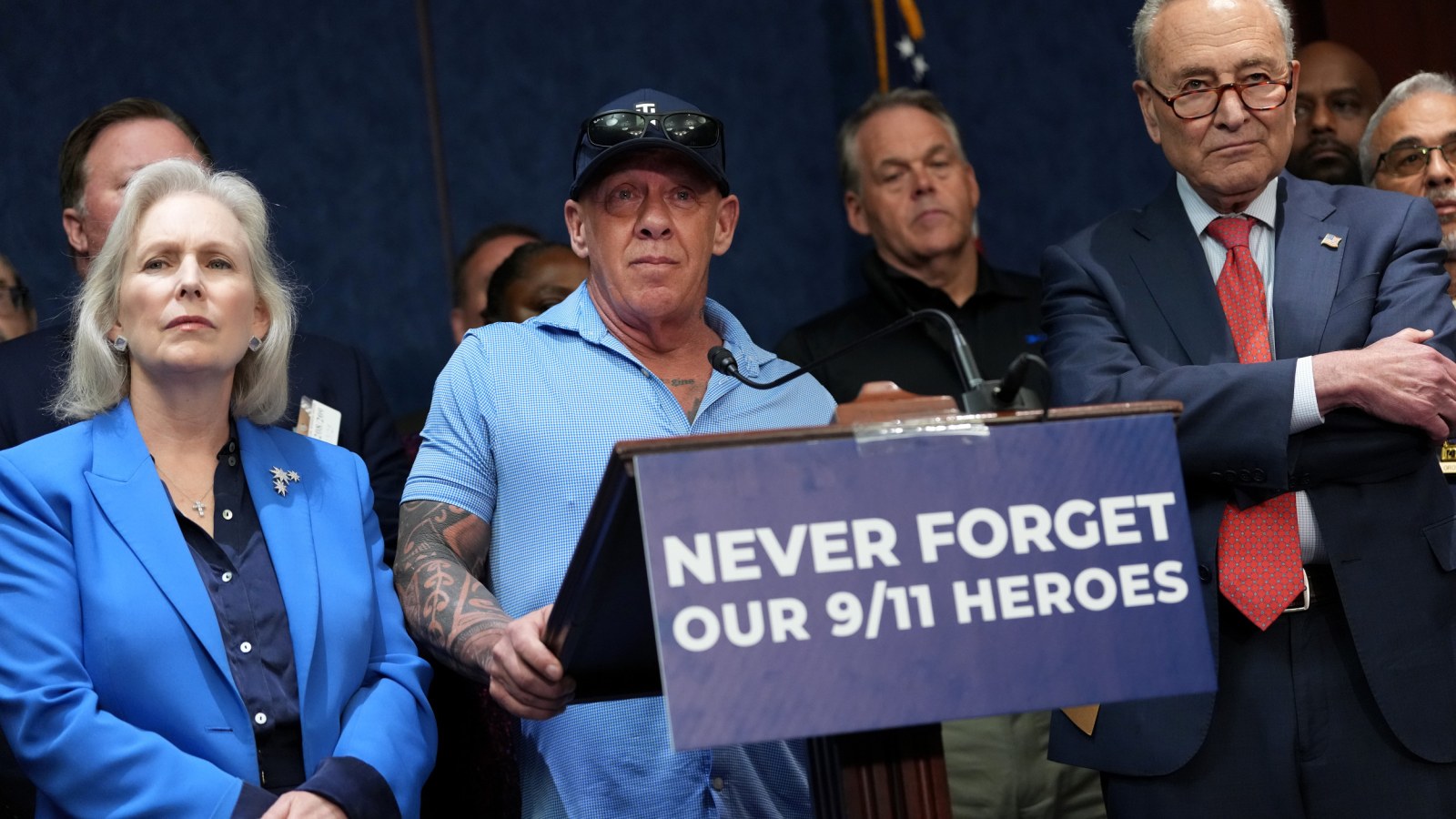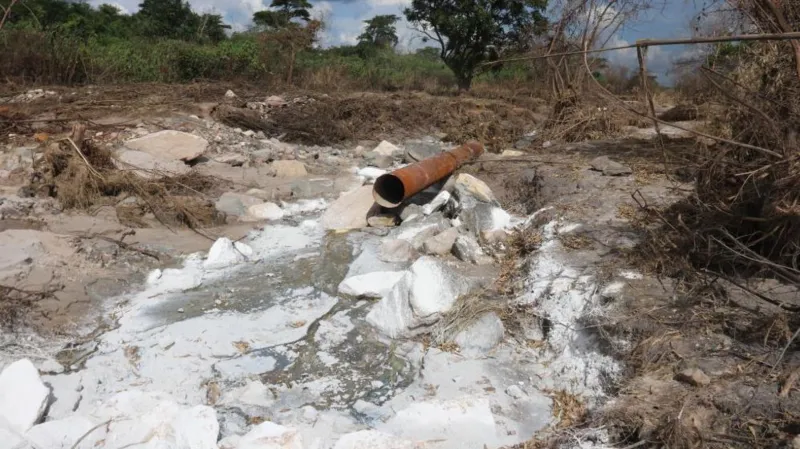By Nick Mordowanec
Copyright newsweek

Advocates are sounding the alarm for Congress to act expeditiously in response to funding cuts that can have long-term negative implications on more than 140,000 survivors and first responders who benefit from World Trade Center Health Program (WTCHP) funding approved after the September 11, 2001, terrorist attacks.Why It MattersThe WTCHP is defined by the U.S. Centers for Disease Control (CDC) as a limited federal health care program that provides high-quality, compassionate medical monitoring and treatment for those directly affected by the conditions associated with the 9/11 attacks in New York City, at the Pentagon, and in Shanksville, Pennsylvania.Since 2011, it has also funded research of the 9/11-exposed population that allows for better understanding of health effects by uncovering emerging conditions and health burdens for victims, in addition to providing physical and mental health care pathways to the afflicted.The CDC reported in June 2021 that nearly 81,500 responders and almost 30,600 survivors were enrolled in the program at that time.What To KnowConcerns about the future of the WTCHP began early in President Donald Trump’s second term as the federal government trimmed itself with budget cuts across myriad agencies, including some 1,300 employees of the CDC starting back in February.At the time, the Department of Health and Human Services (HHS) led by Secretary Robert F. Kennedy, Jr. did not disclose how such dismissals would affect programs like this one.New York Democratic Senators Chuck Schumer and Kirsten Gillibrand were among the first lawmakers calling on Kennedy to reverse course, saying in February that cuts to HHS and the CDC would have a negative impact on the WTCHP and the individuals it has strived to help over the years.They sent another letter last month expressing concerns related to frozen research grants, staffing shortages, and ongoing communication blackouts on behalf of HHS.Newsweek reached out to HHS via email for comment.Bipartisan bills both sponsored in February by Gillibrand in the Senate, and New York Republican Representative Andrew Garbarino in the House, have gone nowhere since their introduction.”Congress made a solemn promise to always care for our 9/11 heroes and falling short is unacceptable,” Gillibrand told Newsweek via email. “For more than a decade, this effort has earned strong bipartisan support, and it should be no different now.”Congress has the opportunity to fix this program and it’s incredibly important that we do so. With the rapid approach of the funding shortfall, I will continue reaching across the aisle to build momentum behind this vital effort to care for those who stepped up to serve our nation in one of its darkest hours.”Newsweek reached out to Garbarino’s office via email for comment.’Like A Tennis Match’The WTCHP was established by the James Zadroga 9/11 Health and Compensation Act of 2010 (known as the Zadroga Act) and extended in 2015. The program, authorized until 2090, provides no-cost treatment for certified WTC-related health conditions only but does not replace primary health insurance.The New York City-based law firm Barasch & McGarry represented Zadroga, a New York Police Department detective who developed pulmonary fibrosis as a result of his exposure to the deadly 9/11 toxins.The firm has represented more than 40,000 9/11 victims and recovered more money from the Victim Compensation Fund, more than $3 billion, than any other law firm in the country.Attorney Michael Barasch has remained one of the program’s fiercest advocates, lobbying in Washington and to lawmakers through dozens of trips to the nation’s capital.”The first victim fund ended in 2003 and then we began to lobby to have Congress reopen it because after all people didn’t stop getting sick,” Barasch told Newsweek via phone. “And at that point, no cancers had been linked.”In fact, no cancers were linked until 2012 and 2013 and ’14, but people were still getting terrible respiratory illnesses. The health department at the FDNY called it the World Trade Center cough. They didn’t know what else to call it.”Zadroga died in 2006 from pulmonary fibrosis at the age of 34. The family did an autopsy, according to Barasch and in his lung tissue they found ground glass, asbestos, lead and benzene—all carcinogens.”And that was the evidence we needed for the National Institute for Occupational Safety and Health to link all these respiratory illnesses to the toxic exposure and eventually 69 cancers,” he said. “The EPA [Environmental Protection Agency] lied to everybody. Five days after 9/11 when they said the air was safe to breathe. Remember that?”Certainly every New Yorker remembers because we came back to work, we came back to school, we came back to our homes, we were doing our patriotic duty. Well, it was not safe, as we know from Jimmy.”Barasch was in the Rose Garden at the White House when Trump, during his first term, signed the extension in 2019 for an additional 75 years. But now, without additional funding in the current session of Congress, the health program will deny new enrollments by 2027 and, ultimately, limit services for existing members.”Mr. Trump was actually in favor of helping the 9/11 community, which is why I am dumbfounded now in 2025 when he has allowed Secretary Kennedy to make these vicious cuts to the whole—not just the health program, but to the entire CDC—which is endangering every American’s health.”He added: “I know my law firm alone has hired five nurses who felt like they had no job security, staying at the World Trade Center Health program. Can you blame them? They were fired. They were rehired. They were fired. They were rehired. It’s like a tennis match.”Barasch echoed concerns from Schumer and Gillibrand, among others, saying that Kennedy’s “communications blackout” has mired the information that clients who benefit from WTCHP receive.As firms like Barasch’s are putting some 500 people a month into the health program, the backlog just to get an initial appointment has increased now from three months to eight months.”And it’s just going to get worse” without congressional action, he warned.Citizens for the Extension of the James Zadroga Act, an advocacy group for 9/11 responders and survivors, reported that last year enrollment for the WTCHP increased by 10,000 people—with expectations that numbers would match or exceed that figure this year.More enrollees but a reduced, staff, cut from the authorized level of 138 employees to 80 as of August, could compound medical care.”You’ve got the best doctors, the best nurses meeting with these people who are looking for specific illnesses that have been linked thanks to years and years of data that they’ve accumulated, and also grants that have funded studies so they know what illnesses to look for,” Barasch said.If $3 billion in additional funding through 2090 isn’t approved, and soon, tens of thousands of people from different genders, races and cultural backgrounds will be affected.Barasch said that potential funding shortcomings could prolong cancer diagnoses, perhaps from three months to nine or 10, noting that “those six months can make the difference between life and death.”What People Are SayingAnthony Gardner, whose brother was killed in the 9/11 attacks and who worked in the WTC Health Program in his honor until he was fired last week, in a statement in February: “For the past 3 years, I was privileged to be a member of the dedicated WTC Health Program team who takes great pride in ensuring the brave community of responders and survivors receive vital medical care and treatment for their 9/11-related health conditions. The recent staffing cuts are particularly detrimental to those who receive care or are applying to receive care through the Program because they cross all of its critical service areas including medical health benefits, health condition certifications, enrollment, member communications, and research.”Jim Brosi, president of the Uniformed Fire Officers Association Local 854 IAFF, in a statement in February: “On behalf of the 7500 active and retired members of the Uniformed Fire Officers Association, I urge Secretary Kennedy and the Trump administration to restore all funding to the 9/11 health program. More members of the FDNY have succumbed to 9/11 illness than were killed on the day of the attack. Survivors and 1st responders suffering from life threatening illness are dependent the treatment and medication this program provides.”What Happens NextThe future of the WTCHP remains unclear as legislation has stalled in both chambers of Congress and HHS continues to redefine its strategies and long-term outlook.



